News from Maison de la Gare
The Streetlight
Tweeter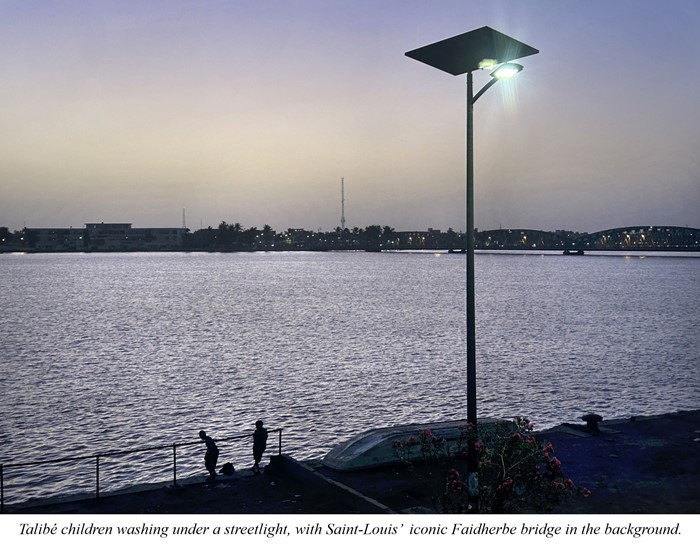
Robbie Hughes illuminates the hidden world of Maison de la Gare’s children
I am sitting on my balcony in South Orange, a small town in New Jersey, USA. An empty parking
lot across the street catches my eye, bathed in the cold radiance of a single flickering streetlight.
I have seen this streetlight every evening as I relax at the end of my day.
Tonight, my thoughts drift far from the peaceful New Jersey evening I am enjoying. They are
drawn instead to the image of a talibé
child in Senegal standing in a parking lot not too different from the one before me. He has
run away from his daara 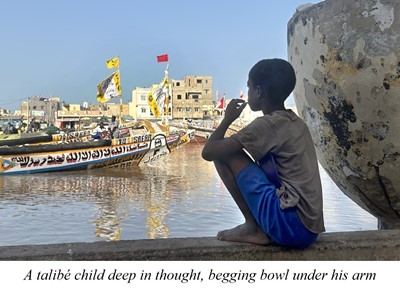 for the first time in search of a distant home. I see him standing
beneath a similar streetlight, grappling with a decision that no child should ever have to
make: do I sleep under the exposed glow of this streetlight where everyone can see me, or do
I hide in the shadows where no one can find me? If I were that talibé, running from a life
of exploitation and abuse, what would I choose… the streetlight, or the shadows?
for the first time in search of a distant home. I see him standing
beneath a similar streetlight, grappling with a decision that no child should ever have to
make: do I sleep under the exposed glow of this streetlight where everyone can see me, or do
I hide in the shadows where no one can find me? If I were that talibé, running from a life
of exploitation and abuse, what would I choose… the streetlight, or the shadows?
There he is, dazed and tired in the middle of the night, wondering whether he should hide or
remain visible. Sleeping under the light brings with it the dread of being found by the very
marabout he has just fled. And yet, hiding in the darkness would come with its own
terrors … the fear of the unknown. The fear that if somebody with nefarious intentions
did find him, nobody would be there to save him.
Then, a heartbreaking realization would strike; visibility wouldn’t matter. Every day this child
is visible. Every day, people see him on the streets, exposed and vulnerable. While nobody
looks in his eyes, they see the bruises, the torn clothes, the empty begging bowl. They see
suffering and they walk by, indifferent to his pain. Every day, people conscious of his
suffering go about their lives, and no one stops to help. Why would tonight be any different?
If they wouldn’t intervene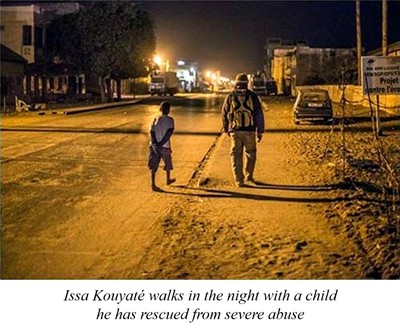 during the daylight when he is forced to beg in plain sight, why
would they now, under the cover of night? The light will not save him. He will still be alone.
during the daylight when he is forced to beg in plain sight, why
would they now, under the cover of night? The light will not save him. He will still be alone.
There is no greater crime than the crimes we commit against our own children. The talibé
children - our children - are subjected to a brutal system of forced labor and abuse, and
far too many of us turn a blind eye. This is not just a crime against that individual child,
it is a crime against humanity itself. How can we look away when the most vulnerable
among us are crying out for help?
The streetlight, often associated with bringing things into the light for clarity and
understanding, serves here as a reminder of the injustices we choose to ignore. Instead
of being a beacon of hope, it exposes the shadows of indifference that envelop our society.
We often associate light with
a force that uncovers truths, exposing wrongdoing so it can be addressed.
Yet, in this context, the light casts a harsh glare on the inaction that defines the talibé
system, exposing one of humanity's many collective failures. Rather than illuminating
paths to safety and justice, it exposes the painful reality that many in our communities
can see the suffering 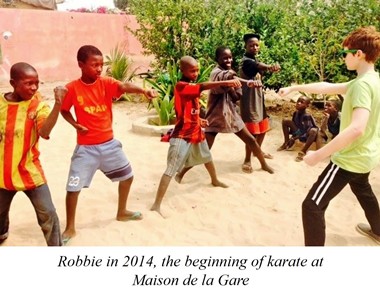 but remain unmoved to act. It forces us to confront the bitter
irony that, while the light reveals the truth, it also exposes our collective apathy.
but remain unmoved to act. It forces us to confront the bitter
irony that, while the light reveals the truth, it also exposes our collective apathy.
The streetlight stands as a powerful metaphor for our moral obligation.
It compels us to reflect on our role in this ongoing tragedy and challenges us to turn
awareness into action. If we are to bring something into the light, let it be our
commitment to change, our refusal to look away, and our determination to protect those
who have been forced to choose the shadows for far too long.
In the end, whether the child chooses the light or the shadows, the outcome remains
the same… he is abandoned, left to fend for himself in a world that refuses to see
his suffering. The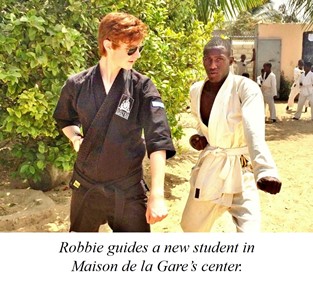 talibé system is not just a tragedy of circumstance. It is a
betrayal of our most fundamental duty to protect our most vulnerable. No longer can
we live in a world where a child must decide between the light and the darkness, knowing
that either choice will lead to the same heartbreaking isolation.
talibé system is not just a tragedy of circumstance. It is a
betrayal of our most fundamental duty to protect our most vulnerable. No longer can
we live in a world where a child must decide between the light and the darkness, knowing
that either choice will lead to the same heartbreaking isolation.
________
Canadian Robbie Hughes is a Masters student in Diplomacy and International Relations
at Seton Hall University, New Jersey. A black belt at age 13, he started Maison de la
Gare’s karate program in 2014. He has recently returned from his seventh visit
to Saint Louis.

